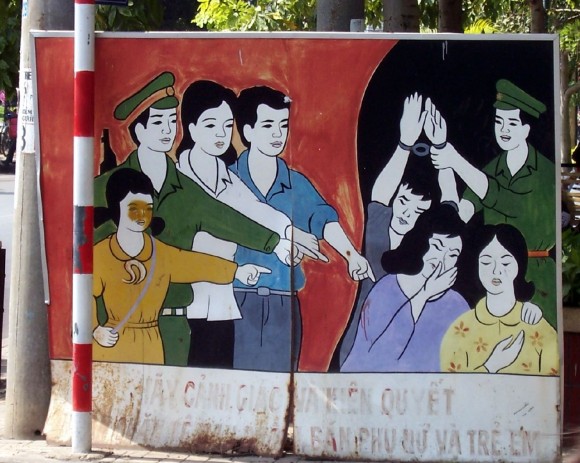aNewDomain — Public shaming is a double-edged sword. It can serve a positive function by promoting responsible behavior (in shaming irresponsible actions), but more often it can create hate and cause lasting harm to those shamed. A great renaissance of public shaming has swept our Internet-based world. Has “justice” been democratized, or is this a medieval method of judgement? Maybe we all need a new moral compass to find the right way to act in the digital age.
One current example is tax day in the U.S. Public shaming seems to work against tax delinquents. The New York Times wrote, “Nearly two dozen states — among them California, Massachusetts and New York — publish online lists on state websites revealing the identities of tax delinquents.” Research shows that these methods are quite effective.
To Shame or Not to Shame
The silent majority often gets a loud and brutal voice when it comes to shame. For instance, some youth are afraid to report bullying because of shame of what their peers will do or say. The silence allows harmful shame to continue, where vocal and public outrage could actually inflict some change.

I wrote about the gamers who tried to push women out of the gaming community using verbal sexual abuse and slut shaming, and my speaking out is one of the voices in the gamergate movement. Likewise, the recent jail sentence of the revenge porn site operator curtails the negative public shame and provides the beginnings of good moral conduct. (An example of revenge porn would be where a disgruntled ex-lover posts once-private media to get back at or shame their former lover.) Following this ruling, some states will impose specific laws about revenge porn. Do you think the punishment should be up to a year in jail if the person in the photos or video can be identified?
The other side of the coin is the Stopping Street Harassment campaign, which creates awareness through a public shaming process of men who catcall and harass women. The campaign says:
You can use social media to break the silence. Tell your story. Many men are unaware of the problem. Most laws are written by men, and law enforcement is largely male. With this imbalance, it is especially important that men understand that stares and shouted comments are not compliments. It’s harassment, not flirting.”
[youtube http://www.youtube.com/watch?v=b1XGPvbWn0A]
Video: 10 Hours of Walking in NYC as a Woman
As shame is ‘‘one of the most powerful, painful, and potentially destructive experiences known to humans’’ (Gilbert, 1997, p. 113) it can certainly create awareness, which in the long run can be positive. But in today’s world we are mercilessly finding people’s faults, defining the boundaries of normality by ruining the lives of those outside it and using shame as a form of social control. And because our world has become so connected, the pressures and speed of that shaming is accelerated.
However, shaming can also serve a positive function in terms of promoting positive and responsible behavior. A public shaming of online racism, for example, could be useful among teenagers.

Depending on the context of the society you live in, shame can function like a threat to the moral-social status of all individuals. “Am I a good or valued group member?” is a key question to the heart of shame, and if we do not feel we are “good” then it communicates a painful red alert that we may be falling short. This could be used to leverage a better society, but the thin line that separates bullying from shaming makes the price paid by victims far too high. A moral compass is needed. Where should we find it?
For aNewDomain, I’m David Michaelis.
First image: Shame by Joe Gatling via Flickr
Second image: Bully by Thomas Ricker via Flickr
Featured image: Sexting by Pro Juventute via Flickr













